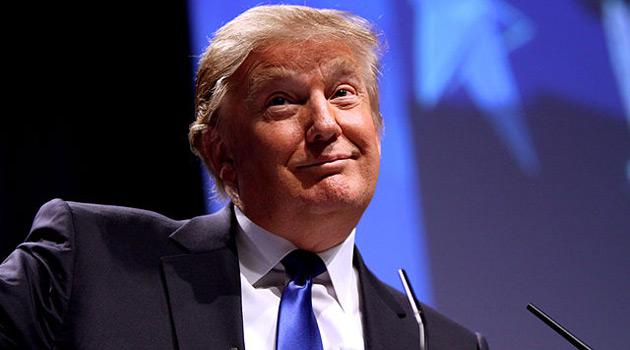Donald Trump is a candidate unlike anything the United States has seen. He is brash and is unrestricted by the constraints of political correctness. He turned his nose up at his fellow opponents for accepting donations and has told his supporters not to contribute money. He has absolutely no political experience, despite having years of business experience behind him. He stands for nearly everything that the average candidate does not.
In another situation, Trump would be laughed off as a heretic. But the political conditions of the United States have made the atmosphere ripe for someone new. His supporters claim that his lack of experience makes him a welcome change from the politically seasoned candidates he is running against. Policies such as Obamacare and views such as Obama’s support for more restrictive gun control have tapped into a portion of the population. White nationalists fear an impending and unavoidable future, that they will soon be a minority and Donald Trump seems to promise a return to the old times, promising to “Make America Great Again”.
Part of his campaign is built on the nostalgia this statement evokes: Make America great again, bring back jobs, bring back our money. This invokes the question – to what time is Trump referring to? By not announcing a certain period of time, Trump is able to appeal to yearning for “the good old days”, whether they are the 1950s, the 1980s or the year 2000.
Another part of his campaign is founded on his ability to completely flaunt the boundaries of political correctness. In examining his presidential announcement alone, he stated,
“When Mexico sends its people, they’re not sending their best. They’re not sending you. They’re not sending you. They’re sending people that have lots of problems, and they’re bringing those problems with us. They’re bringing drugs. They’re bringing crime. They’re rapists. And some, I assume, are good people.”
His solution to this is to build a wall, paid for by the Mexican government. This wall has come up time and time again whether it is the Mexican Finance Minister stating that Mexico will not pay for the wall or in the lawsuit over Trump University. The lawsuit had U.S. District Judge Gonzalo Curiel on it. Trump believed that the judge’s Mexican heritage prevented him from being impartial. Trump further plans to repatriate all illegal immigrants and repeal the law that makes all people born in the United States a citizen.
His intolerance goes beyond illegal immigrants; he proposes to ban all Muslims from entering the country. His plan is to temporarily ban all Muslims until the “problem” is exposed. This measure was later edited to state that he would only ban the entrance of Muslims if they were from specific terrorist countries. He also intends to create a database tracking all Muslims and wants surveillance of mosques, stated in an interview with ABC News. He believes that all Syria refugees must be denied entrance to the country, because they may be ISIS Trojan horses.
His disregard of political correctness extends beyond immigration policies: on the subject of women, he has been quoted saying that pregnancy may be great for the mother and father but it is nothing but a burden on businesses. He has stated that there needs to be some form of punishment for women who seek abortions, though later retracting this statement and saying that the doctors performing the abortions should be punished, despite comprehensive studies concluding that outlawing abortions does little to deter women from seeking it.
On other issues, Trump intends to repeal the Affordable Care Act, otherwise known as Obamacare, and open up health care as a competitive market through allowing the sale of health insurance over state lines. He intends to declare China as a currency manipulator, forcing them raise the value of the yuan. This is intended to create level the playing feel and create a fair trading relationship. On the contrary, it could also cause China to retaliate, starting a trade war.
He proposed a fair policy towards the veterans which will allow them to get care whenever they need it, both mentally and physically. He will increase funding for PTSD, suicide prevention services, and more, as well as increasing funding for job training and placement services.
His policy on gun control is, in a nutshell, criminals shouldn’t be able to access guns but all law-abiding people should be able to defend themselves. He further states that the American gun control issue is actually an issue of mental health.
So where do I stand on the issue of Trump? Some of his policies are formed with good intentions, although there are already flaws being seen through studies and reactions. For example, his tax reform will end up saving the 1% significantly more than the middle class. His program for supporting veterans is commendable. But that is where the praise stops.
It is extremely difficult, even impossible, to separate the man from the hatred he incises. This hatred follows him and his campaign. When two Trump supporters attacked a homeless man, Trump’s response was, “I will say, the people that are following me are very passionate. They love this country, they want this country to be great again.” There have been many other incidents, such as in San Jose, where nonviolent protestors were pepper-sprayed by Trump supporters. Another protestor leaving a venue was sucker punched by a supporter. There are more examples, and no shortage of them at that.
While Trump has stated he does not condone violence, there is a reason it surrounds his campaign. He has tapped into a well of hatred in the United States. He has divided us and his supporters will not go back to respect and acceptance, whether he wins or loses. Racism, misogyny, xenophobia, white nationalism, these are things that existed before Trump, but unconsciously or consciously, he has validated them.
Prarthna Johri is a student at Lehigh University in Bethlehem, PA, USA, who is an intern at ROMEA.

